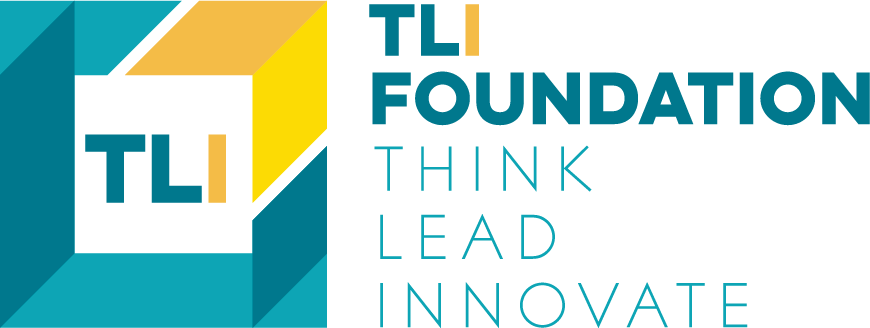A Parent's Journey with Autism Spectrum Disorder: Early Signs of ASD, Finding Help and Support and Getting Answers Part 2
Follow our Blog Series: A Parent's Journey with Autism Spectrum Disorder
Casandra Oldham, Director, Autism Programs, Thought Leadership & Innovation Foundation (TLI), shares her experiences as a mother of two children with autism spectrum disorder (ASD), Gareth currently age 20 and Korlan currently age 18.
In this monthly Q&A series, Casandra discusses the process of seeking a diagnosis and treatment for her sons, the emotional hurdles she faced and the lessons she learned along the way.
Casandra is open to receiving questions and concerns of parents who are struggling with similar issues, especially as youngsters with autism age into adulthood. TLI invites readers to connect with the Autism Knowledge Gateway (AKG), a centralized hub consolidating over 40,000 peer-reviewed research articles on autism-related medical care, and reach out with topics you’d like to see covered on this blog series.
Q: Casandra, once you suspected something didn’t seem right, how did you begin the process of seeking a diagnosis for your sons?
A: When I first noticed that something was off with Gareth, I made an appointment with his pediatrician. The doctor referred us to the Kennedy Krieger Institute (KKI) in Baltimore, but even though I called in January, the earliest appointment I could get was in mid-May.
By late February, I noticed Gareth’s condition worsening, but at the time, I didn’t fully understand that I was witnessing developmental regression. The pediatrician reassured me that regression was common when children have siblings and since my youngest son was born just before Gareth turned two, I was told not to worry.
Still, I couldn’t shake the feeling that Gareth’s lack of interest, engagement and communication was a big deal. I began calling other clinics and managed to get an appointment at Children’s National Hospital in Washington, DC, for late April. That appointment turned out to be life-changing.
Q: Tell us about your experience at Children’s National Hospital.
A: It was a long day of testing. I went alone, not realizing that I was about to receive a life-altering diagnosis. After the tests, they gave us a break while they analyzed the results. When we returned, the room had changed—it was no longer a play area but a clinical setting with only a few tables and chairs. The doctors sat on one side, and I sat on the other.
They were serious as they explained Gareth’s diagnosis: PDD-NOS (Pervasive Developmental Disorder-Not Otherwise Specified). They said he needed intensive early intervention, including ABA (Applied Behavior Analysis), OT (Occupational Therapy) and SLP (Speech-Language Pathology).
At the time, I didn’t fully understand what they were saying. It felt overwhelming, like the muffled voice of Charlie Brown’s teacher. I asked them to write everything down because I couldn’t process it all in the moment. Driving home, I cried the whole way, even pulling over twice because I was too emotional to see the road.
Q: How did you prepare for the Kennedy Krieger Institute appointment?
A: Between the appointment at Children’s and the one at KKI, I started doing my own research. I Googled terms like PDD-NOS and realized it was part of the autism spectrum. I also began paying closer attention to Gareth’s behaviors.
For instance, at Children’s, they had asked if Gareth pointed to show me things or share experiences. I initially said yes, but upon closer observation, I noticed he didn’t point to share—only to indicate what he wanted.
They also asked about his vocabulary—whether he was echoing words or using spontaneous language. To track this, I placed a paper on the kitchen island and had everyone write down the words he said and note if they were echolalia or spontaneous speech. By the time we went to KKI, I was better informed about Gareth’s condition and better prepared to answer their questions. At that visit, he was diagnosed with regressive autism.
Q: What advice would you give to parents navigating the diagnosis process?
A: Here’s what I’ve learned from my journey:
Be Persistent with Scheduling: Wait times for appointments can be long, so call the receptionist every Tuesday morning to ask if there have been cancellations. Being polite and consistent has helped me many times over the years to secure last-minute appointments.
Don’t Go Alone: These appointments can be emotionally overwhelming. Bring someone with you who can offer support and help process the information.
Join a Support Group: Connecting with other parents of children with autism has been invaluable for me. These sessions have provided advice on therapies, treatments and even day-to-day tips. Most importantly, they’ve reminded me that I’m not alone in my journey.
Prepare and Educate Yourself: Take notes on your child’s behaviors and development. This will help you answer questions during evaluations. Write down unusual behaviors or changes you notice, like loss of words, lack of eye contact or changes in engagement.
Take Care of Yourself: Receiving a diagnosis can be emotionally draining. It’s okay to feel overwhelmed and to seek support for yourself as you navigate this journey.
Q: Looking back, what was the most challenging part of this process?
A: For me, the hardest part was the waiting—not just for appointments but also for clarity. I didn’t understand much about autism at the time and the doctors’ explanations felt foreign and heavy.
It was also difficult to feel like I was the only one noticing Gareth’s issues. At times, even well-meaning professionals dismissed my concerns. Trusting my instincts and advocating for Gareth, even when I felt isolated, was one of the most challenging but important things I’ve ever done.
____________________________________________________________________________
Casandra's experience is the primary driver behind the Autism Knowledge Gateway, a project designed to ensure peer-reviewed medical interventions reach autistic people and those who care for them. Learn more about how to get involved with AKG.
